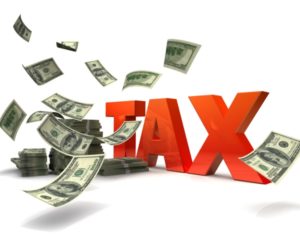
Impact of Bailout on taxpayers and commercial lendersIt seems that everyone has thoughts on the current proposed bailout.Before drawing an opinion it is critical that the American public understands the true cost of such a proposal.The last bailout of this magnitude was in August of 1989 with the creation of the resolution trust corporation (RTC).The RTC’s mission was to manager and resolve failed thrift institutions.Regulation was supposed to be put in place during this time to prevent future collapses (just today Washington Mutual, the largest failure in banking history http://www.bloomberg.com/apps/news?pid=20601087&sid=ao0E1sRCSORQ&refer=home ).When the RTC was formed they were responsible for resolving 747 thrifts with total assets of approximately 402.6 billion.The final cost to taxpayers for that cleanup activity is estimated to be $87.5 billion. The scope and magnitude of such a cleanup effort was unprecedented, yet essentiallywas completed in just six and one-half years. On December 31, 1995, the RTCwas shut down, and its remaining work was transferred back to the FDIC. (source: http://www.fdic.gov/bank/historical/managing/history1-04.pdf )
If the RTC is an indicator of the government’s success and the proposed bailout of 700 Billion is passed, the cost to taxpayers would be approximately 152 B. Are taxpayers ready to foot a 152 Billion dollar bailout to Wall Street? This loss is a best case scenario. The last proposal floated yesterday would have the treasury purchase the securities at “long term market value” as opposed to today’s market value. Purchasing securities at inflated values would likely add more losses to taxpayers. Along with actual monetary losses, I have yet to hear any commentators talk about the interest cost as a result of this bailout. Since the government would have to borrower this money (deficit spending), the taxpayers would have to pay the folks that purchase the governments debts (the majority are foreign governments/entities). The 10 year treasury was at 3.81 percent today (www.bloomberg.com). Just to finance our debt annually would cost the taxpayer ~ 27 trillion dollars a year. Assume the 700 billion is out for 10 years (the last word from the treasury is that it would take ~ 10 years to recoup the taxpayers money). The real loss to the taxpayer would be ~ 400 Trillion over the life of the program. That is assuming best case. As we are all aware, the government is not known for its efficiency and business acumen so the loss is likely to be much greater.
What does this loss mean for American taxpayers? With higher debt comes higher taxes (to pay the interest carry) and a deflated dollar which in turn leads to higher prices (a weak dollar will purchase less imports; think oil and all the items bought from China). The combination of higher debt and higher prices puts the economy in a precarious situation. Bottom line is why should responsible lenders like Fairview (www.Fairviewlending.com) be forced to pay for the excesses of other companies. During the boom days many lenders like us stuck to their lending principals and did not partake in the craziness of the market. Profits were sacrificed during that time but in the end Fairview like many other conservative commercial lenders is not in the precarious state as most other lenders (think WAMU, Lehman, etc…). With this in mind and a likely 400B loss to taxpayers, myself along with most economists feel the bailout is ill conceived in its present form and should not pass. According to many economists the government program assessment of the economy is ” more hype than real risk,” said James K. Galbraith, a University of Texas economist and son of the late economic historian John Kenneth Galbraith. “A nasty recession is possible, but the bailout will not cure that. So it’s mainly relevant to the financial industry.” (http://www.miamiherald.com/news/politics/AP/story/701956.html )
